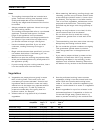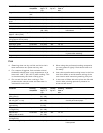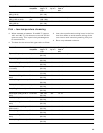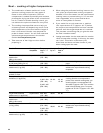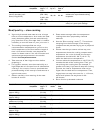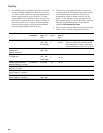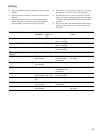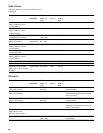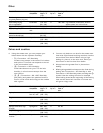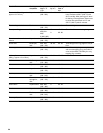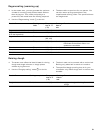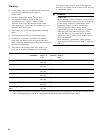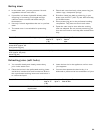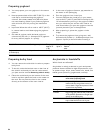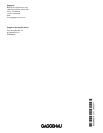
54
Preparing yoghourt
▯ You can prepare your own yoghourt in the steam
oven.
▯ Heat up pasteurized milk to 195°F (90°C) on the
cook-top to avoid disturbing the yoghourt
cultures. Ultra heat treated milk (UH milk) does
not need heating. (Note: If you produce yoghourt
with cold milk, this will prolong the maturation
time.)
▯ Important! Allow the milk to cool to 105°F (40°C)
in a water bath to avoid destroying the yoghourt
cultures.
▯ Stir natural yoghourt with declared yoghourt
cultures into the milk (1 - 2 teaspoons of yoghourt
for every 100 ml (approx. 2.1 pints)).
▯ In the case of yoghourt ferment, pay attention to
the notes on the packaging.
▯ Pour the yoghourt into rinsed jars.
▯ You can disinfect the rinsed jars in your steam
oven at 212°F (100°C) and 100% humidity for 20 -
25 minutes before pouring in the yoghourt. Make
sure you allow the jars and the oven interior to
cool down before you pour the yoghourt into the
jars and place the jars in the appliance.
▯ After preparing it, place the yoghourt in the
fridge.
▯ To prevent the yoghourt from going sour, add
skimmed milk powder (1 - 2 tablespoons per liter
(approx. 2 pints) to the milk before heating it.
Preparing bulky food
▯ You can remove the side slide-in racks to prepare
bulky food.
▯ To do this, undo the knurled nuts on the front of
the slide-in racks and pull out the racks toward
you (see section entitled Removing slide-in racks).
▯ Place the rack directly on the bottom of the oven
interior and then place the food or the roaster on
the rack. Do not place the food or the roaster
directly on the bottom of the oven interior.
Acrylamide in foodstuffs
Which foods are affected?
Acrylamide is mainly produced in grain and potato
products that are heated to high temperatures, such
as potato crisps, chips, toast, bread rolls, bread, fine
baked goods (biscuits, gingerbread, cookies).
Foodstuff Cooking receptacle Tempera-
ture in °F
(°C)
Humid-
ity in %
Cooking
time in
min.
Remarks
Yoghourt mixture
(in sealed jars)
Unperforated 115 (45) 100 240 - 360
Tips for keeping acrylamide to a mini-
mum when preparing food
General Keep cooking times to a minimum. Cook
meals until they are golden brown, but
not too dark. Large, thick pieces of food
contain less acrylamide.
Baking With convection max. 355° F (180°C).
Cookies Egg or egg yolk reduces the production
of acrylamide. Spread out a single layer
evenly on the baking tray.
Oven fries Cook at least 400 g at once on a baking
tray so that the fries do not dry out.



